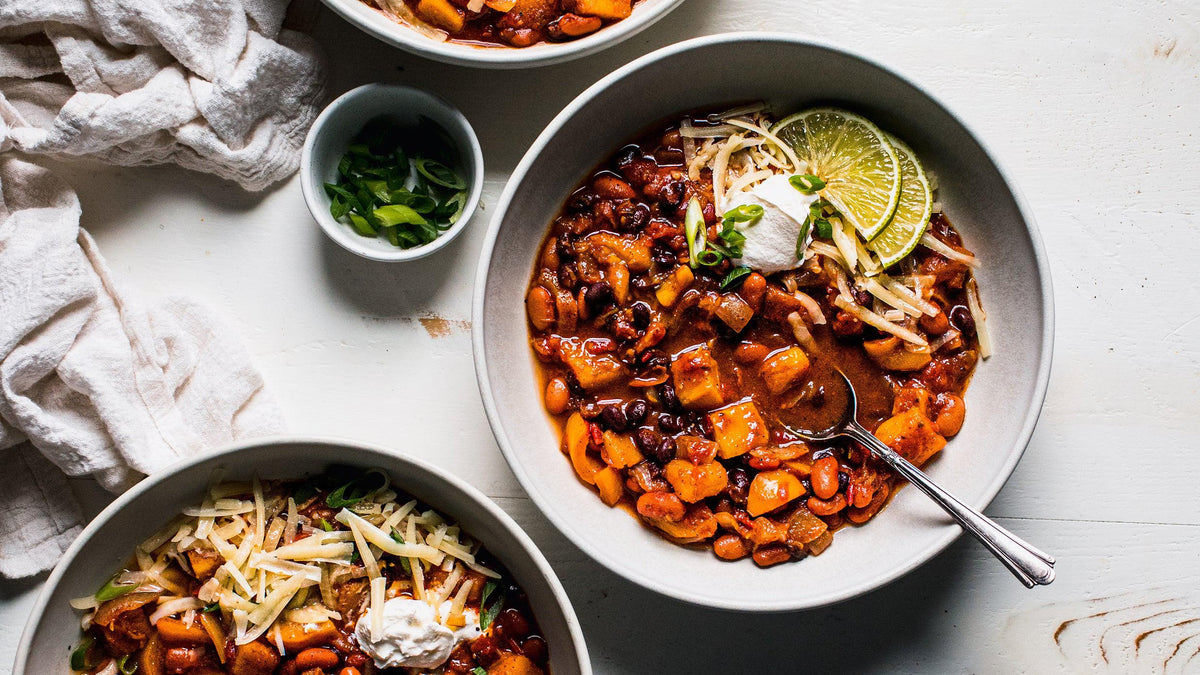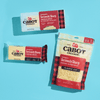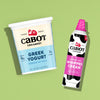
A Little Fat will make you a Better Cook and Improve Your Health
Brierley Horton, M.S., RD is a dietitian nutritionist, content creator and strategist, and avid mental health advocate. She is co-host and co-creator of the Happy Eating podcast, which breaks down the connection between food and mental wellness.
When I was growing up, everything in our house was either low fat or fat-free. It was the 90s after all and all fat was essentially “bad.” And then in college I was schooled in nutrition when health experts (not the media or the PTO moms yet) were just beginning to debate the impact of added sugars. The concept of “good fats” was not yet a lecture hall talking point.
So, with that context, now imagine if 15 years ago—when I was still early in my career as a dietitian and editor—you asked me to write an article on cooking with fat and why it’s good for your health. I would have stared at you blankly.
Well, not surprisingly, things change. “The only constant is change”—as Greek philosopher Heraclitus said.
These days, fat isn’t nearly as verboten. Some fats are “good” (the unsaturated kind) and some are “bad” (saturated and trans fats). But even that approach isn’t so black and white anymore. Newer research suggests that the delivery vehicle for so-called “bad” saturated fat influences the health outcome. For example, in a study that compared adding butter or cheese to participants diets (both of which deliver decent amounts of saturated fat), researchers found that the group who upped their cheese intake didn’t raise their cholesterol levels. And other research has shown that eating cheese every day could help lower your risk of developing cardiovascular disease or having a stroke.
Still, what this current debate of good versus bad (and the 90’s fat-phobics, too) is overlooking is that fat is essential—fat has an important function in baking and cooking, as well as in our health.
Why You Need Fat for Your Health
Fats are one of the three major nutrients your body needs to function. And, in fact, according to the Dietary Guidelines for Americans, we should be consuming 20 to 35 percent of our calories from fat (that’s 40 to 70 grams per day on an 1,800-calorie diet).
We need fat to absorb vitamins (A, D, E, and K specifically). That fat can be in the form of a yogurt dip for your Game Day breaded zucchini sticks, an oil that you saute your peppers and onions in, or even some cheese and sour cream on top of your pumpkin chili. Let’s also not overlook omega-3s—a type of fatty acid (and fatty acids are the building blocks of fat) that is incredibly important for brain and heart health and found in oily fish and some nuts and seeds and their oils.
We need fat (in the form of phospholipids, triglycerides, and cholesterol) to protect the cells in our body and foster communication between cells. Fat also plays a key role in making hormones and hormone function. In fact, research has shown that women who skimp on fat (and particularly unsaturated fat) have lower levels of testosterone. And a new study—published in August 2023—found that women who ate more fat slightly lowered their risk of dying from any cause or from cancer (aka they lived longer).
Fat In Cooking: Why You Need It
Once you understand the function of fat in baking and cooking, why you need fat in your recipes is much clearer.
Fat blends flavors and ingredients—in baking and cooking—to give you a better-tasting final product. Fat also, especially in baking, influences texture. Fat contributes tenderness: fat coats gluten proteins in flour, protecting them from developing too much, so muffins made to be “reduced fat” will be tougher because the glutenis more developed. Fat also traps air into baked goods, especially pastries, and this helps them rise, which contributes to their tenderness and flakiness. The type of fat you use matters, too. Swapping out butter and swapping in oil in baking can be healthier, but solid fats (like butter or shortening) do a better job of trapping air in baked goods. So a pastry made exclusively with oil is more likely to be denser and potentially mealy.
There’s a reason why health professionals refer to fat as “essential”—you have to have it in your diet and your body can’t make it on its own. Fat also makes your food more delicious and eating delicious food makes most people happy and happier people live longer lives. So, let’s celebrate a little fat in our baking and cooking. Here are the recipes that we’re putting in our queue and you should too:
Chocolate Sour Cream Brownie Cake
Apple Pie with Cheddar Cheese Crust
Baked Breaded Zucchini Sticks with Greek Yogurt Dip





















